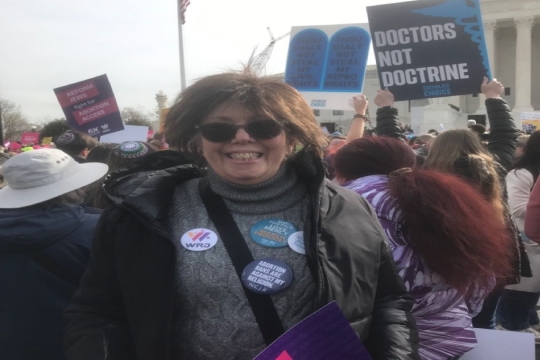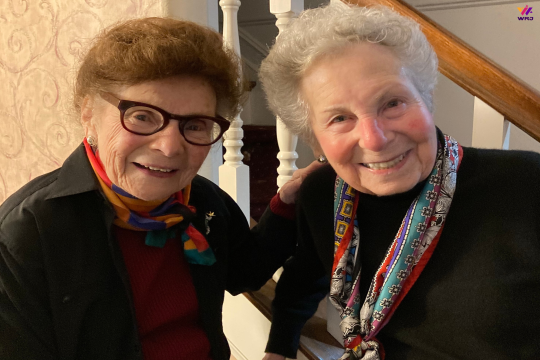
The Shema, Judaism’s most essential prayer, begins with the words “Hear O’ Israel.” Daily, we are commanded not to speak but to listen. I believe that this call to understanding also asks to be silent in order to hear God’s voice.
This week’s Torah portion, Parashah Sh'mini, opens with the ordination of Aaron and his sons as priests (Lev 9:1-10:3). Aaron is proud of his children, and this is a moment of great joy and celebration. But during the excitement, Aaron’s eldest sons, Nadav and Abihu, offer a ritual fire that was not commanded by God, and they are struck dead.
Clearly, Aaron is devastated, and he responds with silence. A child expects to lose a parent someday. The loss of a sibling or spouse can be expected, but the loss of a child? This is a loss beyond the imaginable. Why does he not cry out? The Torah is silent. It does not explain. Perhaps, he is silent so that he can listen for God.
Believing in God is a commitment to God’s presence in our lives, and we know that Aaron is committed to God. This relationship, like any other relationship, will have moments of love and intimacy as well as times of anger and distance. The challenge comes with our response to tragedy or disappointment. A tragic death can challenge your understanding of the relationship between good and evil and reward and punishment. Can we rationalize or justify when bad things happen to good people? It can be easy to ask, “why has God done this to me?” but I’m not sure there are answers to that question. While I personally have faith and I believe in God, as a contemporary Reform Jew, I have difficulty believing that God is concerned with my fate or has the time to worry about me as an individual. I think that God probably has bigger fish to fry.
Given this, how can I be angry at God when tragedy strikes? Thirteen years ago was a time of overwhelming joy for our family and a new season of life for our daughter. We had just sent Tracy off to her first year of college, and in her eighth week, she unexpectedly collapsed on her way to class and passed away. Like Aaron, we were stunned into silence.
Looking back in the very next verses of the Torah portion (Lev. 10:4-7), Moses instructs Aaron and his remaining sons not to participate in the rituals of mourning but to leave it to the community to do so. Aaron silently follows his command.
In my loss, where did I go to find my voice again? It started immediately with Shiva, Judaism’s structured period of mourning that allows one to heal gradually. Never have I felt so enveloped in the love and support of my community. Unlike Aaron, who mourned alone, my home was immediately filled with sisterhood women who took care of my physical needs and held my hand in silence, waiting for me to speak. For me, these women became the silent voice of God. They allowed me to see grief through a positive lens, not focusing on the loss but on what Tracy’s life meant to all of us. Yes, there will always be a hole in our hearts, but if we can incorporate the best elements of our loved ones in our own lives, they will be able to live on. In time, I was able to see that this loss was a call for me to share her joy with others and to support those who have also suffered a loss.
We are taught that there is a season for everything, a time for every purpose. In the years since our daughter’s death, I am no longer silent. Through my amazing network of WRJ friends, I have found meaning in sharing my story, sparking joy, and supporting others in their times of struggle. The grief is always there, like a pebble in my shoe. Sometimes it is off to the side, and I can manage. Other times, it is directly underfoot, and the pain can be blinding. This is when I can call on my WRJ friends for support. I know that time will pass, and the pebble will move, and it is through these experiences that I’ve learned that silence can be valuable until such time as you can return to wholeness.
Finding God in the Silence
Breathless, I have no words
And yet I believe
In the silence, show me the way
I am listening Eternal One
Return me to wholeness
Ahavat Olam with everlasting love
May we all go from silence to praise and from strength to strength.
Related Posts

Andrea Stillman: A WRJ Leadership Spotlight


